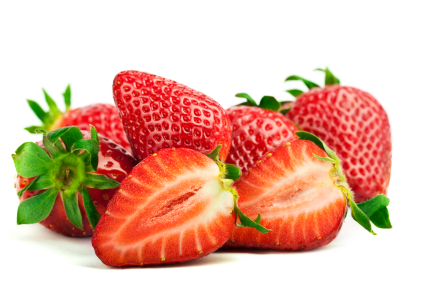
We have been closely following the recent reports of poor wages and working conditions for farmworkers at several farms that supply berries packed under the Driscoll's label.
We have sought and we will continue to seek out relationships with fair trade and ethical strawberry growers in Mexico and the US, and purchase preferentially from these growers when their product is available, of good quality, and at a price our Owners see as a value. We recently received and promoted the first ever fairly traded Mexican strawberries to reach US markets (Limited Edition label), and we are excited to continue to help this and other equitable berry companies gain a foothold in the international market.
Building a more equitable global supply chain for fresh produce is important work, and we are dedicated to it. However, because this means working with a patchwork of smaller growers rather than just one or two huge corporate entities, there are inevitably gaps in supply.
Because Driscoll’s is the largest producer of organic strawberries in the world, we have and will continue to source Driscoll’s brand organic berries when we are unable to find a viable alternative. Given the disputes in Mexico and Washington state, we will do our utmost to source Driscoll’s organic strawberries from California whenever possible until the labor disputes have been settled in a way that is satisfactory to the workers.
What are the details of the current disputes?
In order to ensure a year round supply of fresh berries, Driscoll's contracts with hundreds of independent farms from Chile to Canada. Two of these farms have recently been the subject of worker strikes and boycotts.
BerryMex is a large producer of Driscoll’s berries (strawberries, raspberries, blackberries and blueberries), with operations in Baja and Jalisco, Mexico. In March, 2015, farmworkers in Baja started a strike, demanding an increase to their wages (which were roughly $10 per 12 hour day) and better working conditions. On March 31, BerryMex announced a pay increase of 20-40%, and many of the farm-workers returned to the fields, however, some workers continue to strike, saying that the increase was not satisfactory.
For more information, visit the following links:
- http://www.utsandiego.com/news/2015/mar/31/san-quintin-strawberry-san-quintin-driscoll/
- http://www.latimes.com/world/mexico-americas/la-fg-baja-farmworkers-strike-20150326-story.html
- https://www.kpbs.org/news/2015/may/12/baja-california-farmworkers-meet-officials-after-v/
Sakuma Brother’s Farm is located in Burlington, Washington and produces berries (mostly blueberries and blackberries) sold under the Driscoll’s label. In the summer of 2013, workers from Sakuma went on strike in response to wage theft, harassment, and other labor malpractices. Since then, Sakuma has agreed to a $850K settlement in a class action lawsuit over stolen wages, and several discriminatory supervisors have been let go. Despite this, workers continue to struggle for increased wages and better working conditions and have called a boycott of Sakuma’s two largest customers: Driscoll’s, Haagan-Dazs, and Yopait.
For more information, visit the following links:
- https://seattleglobaljustice.org/2015/02/sakumaboycottoverview/
- http://www.treehugger.com/green-food/farmworkers-call-consumers-boycott-driscolls-berries.html
How can I tell if a specific package of Driscoll’s berries came from BerryMex or Sakuma Brothers?
Every package of Driscoll’s berries has a 16 digit number displayed on the bottom (next to the UPC code). By entering the number atwww.mydriscolls.com, you should be able to track that package of berries back to the farm it was grown on.
What is Willy Street Co-op’s sourcing policy?
- Preferring to source local, organic, natural, sustainable, humane, and fairly traded products which represent our Owners’ diverse values and contribute to healthy, just, tolerant and viable communities.
- Providing fairly priced products to support accessibility for all in our community.
- Fostering supportive and transparent relationships with small, local, or cooperatively-operated farms and businesses that share our commitment to operate in ethical and environmentally sustainable ways.
- Helping Owners make informed choices about products whenever possible.
To read the full text of our Food and Product Selection Philosophy, please follow this link: http://www.willystreet.coop/food-and-product-selection-philosophy
When can I purchase local strawberries?
If you prefer to avoid the global food supply entirely, local strawberries are a great choice! Strawberry season in Wisconsin generally runs from mid-June until early July. We sell local strawberries whenever possible, and in most cases we offer a 10% case discount if you buy a full flat. Local strawberries are easily preserved for year round use by freezing, or canning in the form of jelly or jam.